
Customer Experience - People
The purpose of this guide is to provide some practical guidance on how to implement go...
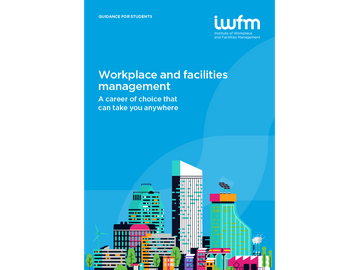
Career of Choice
Look at the skyline of your local town or city. Think about all the different building...
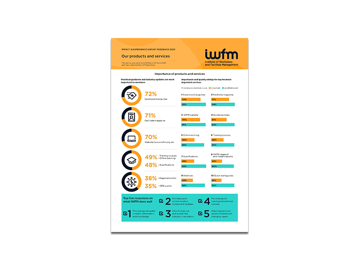
Impact and Experience Survey 2020: Products and services infographic
This infographic features information about our products and services. From the Impact...
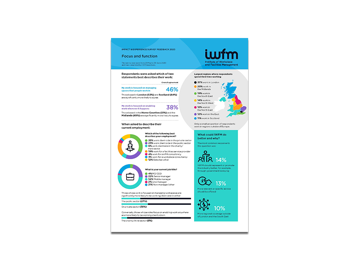
Impact and Experience Survey 2020: Focus and functions infographic
This infographic features information about focus and function. From the Impact and Ex...
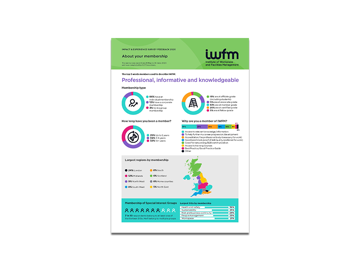
Impact and Experience Survey 2020: About your membership infographic
This infographic features information about your membership. From the Impact and Exper...

New bitesize course launches: WFM Essentials – The Facilities Management Transformation Guide
Facilities Management is evolving, and so are the expectations placed on professionals...

IWFM showcases WFM as a career of choice at Guernsey schools event
IWFM recently took part in a major careers event in Guernsey, engaging with hundreds o...
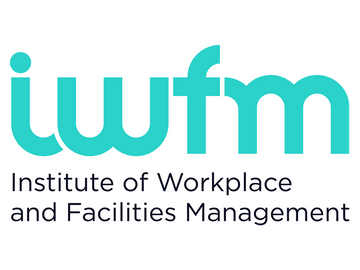
IWFM supports call to raise eligibility age for Level 7 Apprenticeship funding
IWFM has signed a joint letter to the Secretary of State for Work and Pensions, urging...
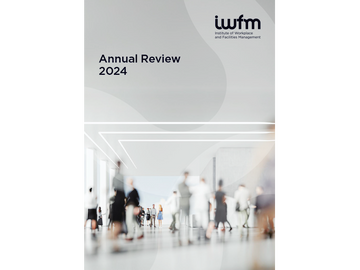
Annual Review 2024
2024 was a decisive year for the Institute with significant progress in the second yea...
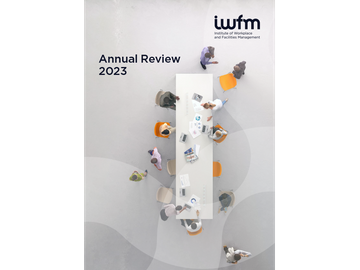
Annual Review 2023
In 2023, the Institute entered its fourth decade IWFM embarked on a three-year strateg...
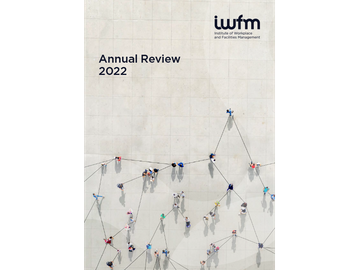
Annual Review 2022
After two years of navigating and supporting members through the many impacts of COVID...
Improving the future of work
IWFM believes that all work in the UK economy should be fair and decent with realistic scope for development and fulfilment.
We therefore welcomed the publication in 2017 of Good Work, The Taylor Review of Modern Working Practices which sets out a number of steps towards fair and decent work and contains several principles to address the challenges facing the UK labour market. IWFM contributed to the Review on a number of FM-related issues including flexible working, widening the apprenticeship scheme to other training opportunities, the National Living/Minimum Wage (NLW/NMW) and zero hours contracts.
We also echo the Review’s acknowledgement that we need to develop a more proactive approach to workplace health as this is vital both for individuals and for our economy. Better designed work can also make an important contribution to tackling the complex challenge of low productivity, potentially delivering a £20 billion uplift to the UK economy (according to the Stoddart Review).
The Taylor Review included several recommendations for the Government to take forward which are relevant to our profession:
Zero hours contracts
These should be maintained as they offer flexibility to people with different needs and priorities. However, Government should develop legislation that gives agency workers and those on zero hours contracts the right to request a fixed hours contract after being employed for a long period of time and require companies above a certain size to report on how many requests for fixed hours contracts they have received (and agreed to).
Low Pay Commission (LPC)
The LPC should have a wider remit to include looking at ways to improve the quality of work across all sectors. Specifically, it should be tasked with examining how a higher NMW rate might apply to non-guaranteed hours.
Statutory Sick Pay (SSP)
This should be reformed so that it is explicitly a basic employment right, comparable to the NMW, for which all workers are eligible from day one regardless of income.
Apprenticeships
Government should consider making the funding generated by the Apprenticeship Levy available for high-quality, off-the-job training other than apprenticeships.
Technology & Productivity
The emphasis in the industrial strategy and sector deals on technology and innovation should be linked to driving productivity and enabling more rewarding working lives, especially in lower-paid and lower-skilled sectors.
Upskilling the labour market through lifelong learning will play an important role in dealing with the challenges of automation and Artificial Intelligence.
IWFM will continue to contribute to the debate on fair and secure employment and will feed into Government proposals to ensure that any future employment changes affecting the workplace and facilities management profession will take our members’ experience and insight into account.
Useful links
IWFM welcomes new Living Wage rates (November 2018)
Downloads
Overview of Government actions and initiatives on the future of work
Why T Levels are important for FM
T Levels are new two-year, Level 3 technical qualifications which will sit alongside A Levels and apprenticeships to offer young people genuine parity of choice between vocational and academic education.
They were part of the reforms put forward in 2016 by the Independent Panel on Technical Education to transform the UK’s poorly-performing technical education system, equipping students with the knowledge and skills that employers value and that are needed to progress to higher education.
Overseen by the Institute for Apprenticeships, the first three T Levels - in Construction, Digital, and Education and Childcare - will be introduced in selected schools and colleges from September 2020 with 22 further qualifications rolled out in following years. The Construction route comprises three pathways:
1) Design, Surveying and Planning: this is the most advanced and has been selected for delivery in 2020
2) Building Services Engineering (the pathway under which FM currently sits) and On Site Construction; these will follow for first delivery in 2021
All qualifications include a 45-60 day compulsory industry placement aimed at giving students the experience and wider skills they will need in the world of work. Further details on the introduction of T Levels can be found here.
The workplace and facilities management profession is rapidly evolving into a diverse, multi-faceted sector which is facing a major skills shortage. The Open University 2018 Business Barometer put the direct cost of the UK skills shortages at £6.3 billion a year. In our Facilities Management 2018 Business Confidence Monitor, 27% of respondents cited the shortage of skilled staff as the factor most likely to affect the success of their business this year.
This skills gap has been exacerbated in large part by the lack of attention and investment given to technical and professional education over recent years. T Levels, alongside the Apprenticeship Levy, if implemented correctly, could be an important part of the solution, giving young people from all backgrounds a high-quality route to gaining the knowledge and technical skills they and business need to succeed, thereby creating a more successful economy and raising the UK’s productivity.
Downloads
Engaging with the implementation of T Levels
Mind the skills gap
Our profession is experiencing a significant and growing skills shortage due to the sector’s substantial growth over the last 30 years, a lack of applicants with the right skillsets, and demographic changes. Whilst migration should not be seen as a long- term fix to deal with skills shortages, Freedom of Movement for European Economic Area (EEA) nationals has helped to mitigate the problem for the FM sector.
Currently, in certain parts of the profession, up to 24% of the workforce comes from the EU and for some organisations in specific roles and locations this reaches 34%. EEA nationals work across the skills spectrum of workplace and facilities management, from highly qualified business leaders through middle management to lower-skilled, but nonetheless valued, positions.
There has already been a decrease in immigration from the EU due to the lack of certainty since the referendum in 2016. We are therefore deeply concerned about continued access to labour markets, including EEA workers, after the UK’s planned departure from the EU. Our strongly-held view is that our profession, as well as the wider UK economy, needs an evidence-based and flexible migration policy to allow access to the appropriate levels of labour from the EU and beyond in order to alleviate the skills gap and be better placed to fulfil its potential. At the same time, this does not negate our profession’s responsibility to invest in upskilling and attracting new talent.
EU migrants currently working in the UK and their families are required to apply to continue living in the UK after Brexit under the EU Settlement Scheme by 30 June 2021. If ‘no deal’ occurs, applications can be made only until 30 June 2020. Our guide to Brexit and immigration (see link below) provides a summary of what leaving the European Union means for employers and their EU workers.
The Migration Advisory Committee (MAC) is an independent, non-statutory public body that advises the Government on migration issues. Its recommendations led to the Government announcing its post Brexit immigration policy. Proposals included ending the free movement of people from the EU and the introduction of an Australian-style points-based system with restrictions of low-skilled immigration. If introduced, these measures both will have significant implications for workplace and facilities management recruitment across different skills levels and specialisms.
We have engaged with Government on its post-Brexit migration policy and put forward our recommendations to the MAC and other political stakeholders in our Position Paper on Migration (see link below). IWFM will continue to lobby Government in this area.
To help our profession deal with the challenges of the skills shortage we are also engaging across several other policy areas including education, employment and technology. We believe that the skills gap requires such a cross policy, holistic approach in order to find the appropriate solutions. In addition, we are working with key strategic partners on a Career of Choice campaign which will seek to promote workplace and facilities management as a career of choice to a range of new audiences and groups.
Downloads
Position Paper on Migration (published by BIFM which became IWFM in Nov 2018)
Brexit and immigration - a useful guide for IWFM members
UK migration policy post Brexit making the case for FM
Creating the FMs of the future
Apprenticeships are a key part of the solution to the skills gap which is increasingly impacting the workplace and facilities management profession, including at senior levels.
We are long-time advocates of the opportunities that employment-based education can offer and its vital role, alongside other training and development methods, in supporting excellence and improving productivity in the workplace. New Trailblazer apprenticeships were introduced in England in 2013, putting employers at their centre to ensure that they provide learners with the skills and knowledge needed by industry now and in the future.
IWFM were delighted to provide our expertise and commitment to these new pathways, working with employers and academic institutions to create the standards, qualifications and assessments which underpin the Facilities Management apprenticeships (see link below). We have supported the development of three apprenticeship standards to date, with a fourth being near completion.
The Apprenticeship Levy was introduced in 2017 with the aim of creating three million new apprenticeships by 2020. Under the scheme all employers with an annual salary bill of over £3 million pay 0.5% of their salary total into a central fund (regardless of whether they employ apprentices) which is open to any business that wants to offer in-work training.
The expectation was that the levy would help close the industry’s skills gap by providing guaranteed investment to develop the necessary skills, whilst also being a useful tool to promote social mobility and address the country’s productivity challenge. However, the number of new apprenticeship starts is 15% down on pre-levy figures with employers expressing confusion and frustration over the restrictions and inflexibility of the system.
Some critics of the levy see it as little more than an extra tax and levy paying businesses are often not drawing down the money set aside in their digital accounts. Many SMEs, who do not contribute to the levy and have their apprenticeships subsidised, have called the system complicated, poorly organised and not appropriate for their training needs. Nonetheless, the Department for Education maintains the scheme is succeeding in increasing the number of quality and higher-level placements.
Whilst supporting the principles of the apprenticeships, IWFM is continuing to engage with Government to ensure the implementation achieves its potential. As indicated in our Position Paper on the levy (see link below), we have serious concerns that the financial and bureaucratic failings of the Apprenticeship Levy will turn businesses away from investing in the skills the sector needs. In particular, we are seeking reform in two key areas: ensuring sufficient funding bands are available for the FM Apprenticeship Standards and increasing flexibility to use the levy funds on a wider range of training interventions.
Useful links
Facilities Manager Apprenticeships Standards
Downloads
Position Paper on the Apprenticeship Levy (published by BIFM which became IWFM in Nov 2018)
Working to improve the delivery of apprenticeships

